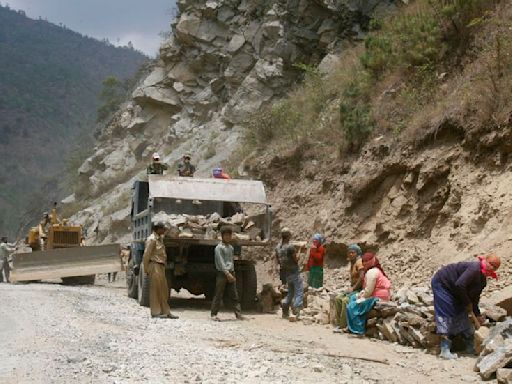Search results
Subrahmanyam Jaishankar (born 9 January 1955) is an Indian diplomat and politician, who is the thirtieth Minister of External Affairs of the Government of India since 31 May 2019. [1]
Dr. S. Jaishankar is India’s External Affairs Minister since May 30th, 2019. He is a Member of the Upper House (Rajya Sabha) of India’s Parliament from the state of Gujarat.
Jun 15, 2023 · Jun 15th 2023 | Delhi. O N JUNE 13th Subrahmanyam Jaishankar, India’s Minister of External Affairs, sat down for an interview with The Economist at his office in South Block in central Delhi. He...
Foreign minister S Jaishankar who had a long career in diplomacy before he became the foreign minister succeeding Sushma Swaraj revealed what made him drawn to this career.
Oct 18, 2023 · External Affairs Minister of the Republic of India Dr S Jaishankar will visit Singapore from 19 to 21 October 2023. Minister Jaishankar’s visit reaffirms the close and longstanding ties between Singapore and India, which are built on a strong foundation of strategic trust.
Nov 13, 2023 · S. Jaishankar on India’s growing global role The minister for external affairs says his country is more confident, capable and responsive than ever before
Mar 24, 2024 · Dr Jaishankar’s remarks signalled a gentler tone on the brain drain issue, while connecting members of the Indian diaspora to their ancestral country.
Mar 15, 2023 · India no longer needs to conform to norms established by other countries. Colloquially referred to as the “Jaishankar Doctrine,” this set of 21st-century foreign policy principles is enabling India to project its influence in a way it has never done so before.
Subrahmanyam Jaishankar (born 9 January 1955) is an Indian diplomat and politician. He became Minister of External Affairs of the Government of India on 31 May 2019.
Mar 3, 2021 · Jaishankar’s vision of India’s role and ambitions is thus unabashedly realist—but without any crude materialism. He values and makes central the production and the wielding of power, but he also recognizes the importance of legitimating India’s growing capabilities and securing the support of others in New Delhi’s endeavors.

